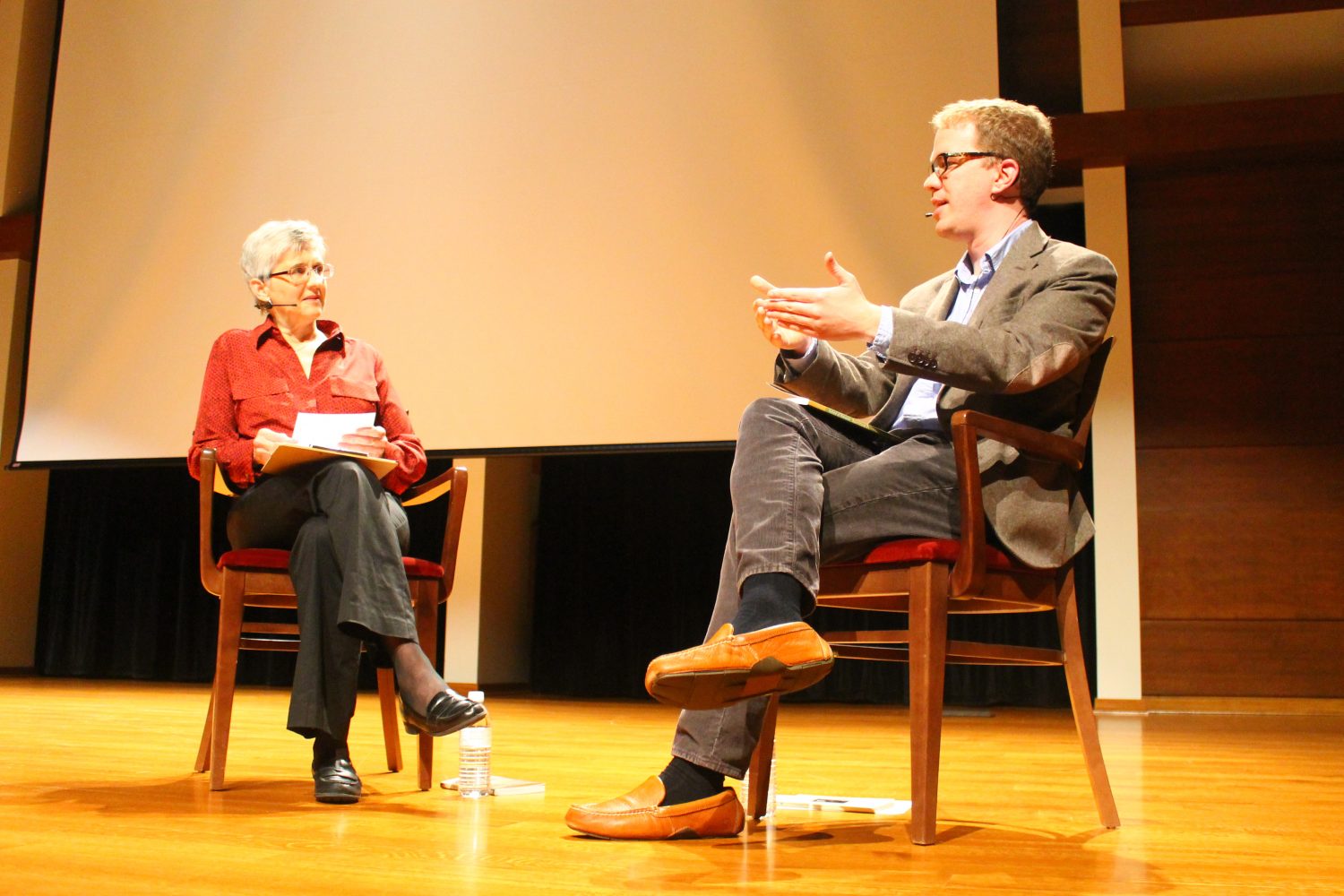When Julia Smith, director of the sexuality series at Calvin, was introducing Wesley Hill at his talk on being a celibate gay Christian on Tuesday, she asked why Calvin holds events like these.
Before she could answer her own question, my mind started formulating the answer: our Reformed identity prompts us to engage every square inch of God’s creation and the messy discussion around sexual orientation is no exception.
But Julia Smith threw me a curveball.
While my answer would have gotten me an A in my capstone class, Julia’s answer was beautifully simple: “Because we love our students.”
And that answer got me thinking. Much to my surprise, love turned out to be a major theme of Tuesday night’s talk on what Christian friendship looks like, and what it looks like for people who are single.
I was amazed at Wesley’s wisdom when he said that, for him, celibacy was not a call to repress his love, but it liberated him to be able to love everyone.
Of course, he wasn’t talking about a romantic love, but his talk touched on a deep friendship and love for other human beings that we often don’t do well.
And while this love plays an important role with the people he knows personally, he’s also loved people in another major way: he’s sharing his life and God’s work in it with us at Calvin and with the world through his book.
I met with Wesley briefly on Wednesday morning and asked him why he would share a story so close to his heart with so many people.
And his answer, like Julia’s, was beautifully simple: he saw a need. He saw a group of people who needed understanding; he saw individuals who needed encouragement in their own journeys and he was filled with love for them.
So he took a giant step: what was once a secret between him and professor was sent off to the printing press.
My favorite book on leadership points to this kind of love for people as the foundational basis for any leadership we do: “Leadership is driven by the desire of one person to contribute to the people with whom he or she lived and worked. Love lies at the core of what makes life worth living.”
Loving the people who are around us — whether it’s the student in the desk next to us or a student at a college a thousand miles away — is ultimately what drives us to service and to leadership.
And, as Christians, we follow the perfect example of Love incarnate, a Love who humbled himself to death, even death on a cross for the people he loved.
Isn’t that kind of love exactly what this conversation needs?
On an issue defined by dichotomy, categorizing people into “for” and “against,” with little room for nuance or thoughtfulness, it’s easy to forget we’re talking about real people, most of whom aren’t out publicly.
Our role as Christians and as leaders at Calvin is to extend Christ’s love in this conversation and to promote understanding, even when it might be unpopular and even when there might be pushback.
And the pushback is worth it. Because when we put ourselves on the line in order to love other people, no matter the cost, we follow the example of the greatest Love of all.



